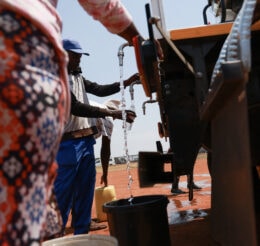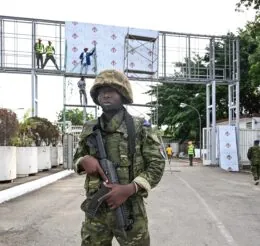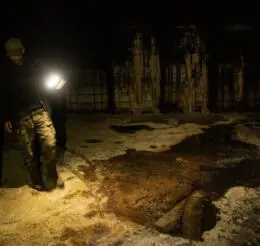Portfolios
Explore our Portfolios

Strategic Blind Spots
As the United States pursues its vision for a more stable, secure international order abroad, challenges, illicit trades, and potential conflicts have emerged under the radar of Washington and its partners. What are these “blind spots” in foreign and defense policy that have the potential to jeopardize local stability and human security, as well as the interests of the U.S. and its partners?
This portfolio explores specific challenges and flash points that have the potential to fuel conflict and insecurity and to threaten core U.S. interests abroad. The portfolio analyzes and shines light on emerging conflicts, illicit trades, actors’ incentives structures and behavioral patterns, and shifting defense priorities that can fuel and shape power vacuums over time. The Blind Spots Portfolio includes two projects, the Special Project on the Captagon Trade and the Special Project on Post-Withdrawal Security Landscapes.
The Strategic Blind Spots portfolio is directed by Caroline Rose.
Strategic Blind Spots Initiatives
Special Project on the Captagon Trade
The Captagon Trade Interactive Map
The Captagon Trade Interactive Map is the most comprehensive open-source data resource for all interdictions related to illicit flows of the amphetamine-type stimulant, captagon. Launched in October 2024, the Captagon Interactive Map pulls from open-source data compiled by the New Lines Institute Captagon Trade Project and Observatory for Political and Economic Networks that catalogue drug seizures, arrests, violent clashes, laboratory busts, and other captagon-related interventions. This tool can help researchers identify how the captagon trade has grown in the Mediterranean-Gulf zone, in addition to capturing new patterns in production, trafficking, and consumption.Project on Post-Withdrawal Security Landscapes
Strategic Blind Spots Latest
Submissions
The New Lines Institute for Strategy and Policy publishes work that combines geopolitical insight with subject-matter expertise. New Lines Institute publications examine tactical developments involving regimes, nonstate actors, local politics, ideologies, etc. Our work situates them in the strategic context of macro-level factors such as geography, populations, economics, military power, history, and culture. All our content must demonstrate analytical empathy and is geared toward advancing the cause of human security and stabilization and development on our planet. That said, we do not publish “op-ed” pieces, polemical content, or activist/advocacy work.
We welcome contributions from diverse experts with various sub-specialties to ensure that we consistently produce the highest-quality product. Our team firmly believes that expertise exists across the political spectrum and disciplinary fields; the key is to help our authors showcase it without indulging in partisan discussions. We expect our authors to focus on the how, why and (most importantly) the what next because our audience is already very familiar with the who, what, where, and when of the subjects we tackle.












